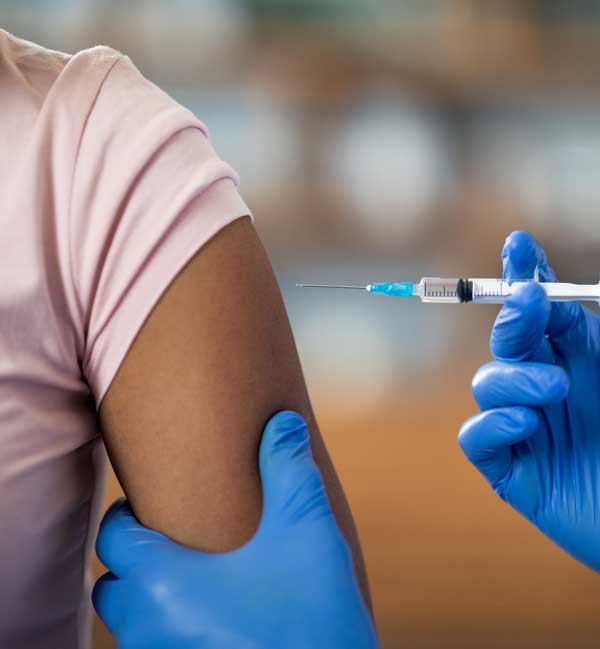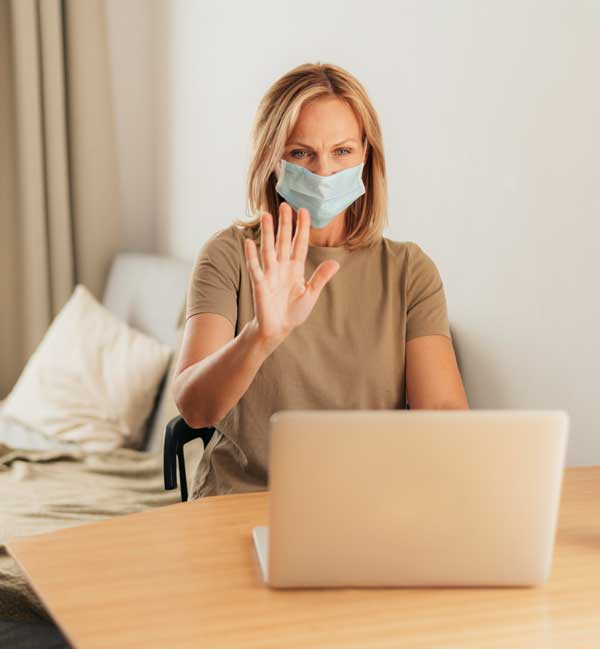Beyond Lattes: Unconventional and Healthy Ways to Savor Pumpkin Spice
As soon as the leaves start to turn and the air becomes crisper, the unmistakable aroma of pumpkin spice fills the air. It’s a flavor
It’s essential to be aware of any medical conditions that could put you at risk of becoming sick from COVID-19. Before knowing the risks, it’s vital to educate yourself on your current health status and find out if you have any underlying health conditions.
Certain underlying medical conditions act as high-risk factors, such as: being over 65 years old and having an increased body mass index (BMI). Other risk factors include smoking, chronic respiratory diseases such as asthma or COPD, heart disease, diabetes, and lung cancer.
High-Risk Factors for COVID-19
Pre-Existing Medical Conditions That Increase Risk for Severe Complications From COVID-19
If you think you may be at high risk for severe COVID-19, talk to your doctor about what steps to take. Your doctor can help you understand the risks associated with your health conditions and provide guidance on how best to keep yourself safe. Knowing if you have a high-risk factor can save your life. Protect yourself and those around you by taking all necessary precautions if you are at higher risk for severe illness from COVID-19.
Additionally, it is essential to remember that even people without known or listed risk factors may become severely ill from COVID-19. It is crucial to stay informed, be aware of your health, and take all necessary precautions for everyone’s safety.
Be prepared and stay informed about COVID-19 to protect yourself and others from getting sick. Taking the proper steps now could help save your life in the future.
For more information on identifying if you are at high risk for severe illness from COVID-19, visit the Centers for Disease Control and Prevention website or talk to your doctor. Take care of yourself and those around you by taking all necessary precautions if you are at higher risk for severe illness from COVID-19.

If you have any risk factors, there are many proactive steps you can take to prevent severe complications from Covid 19.
The first step is to make an appointment with one of our navigators. They can help you find a vaccination location near you. Becoming vaccinated is an essential step you can do as it’ll serve as your first line of defense should COVID-19 strike. We encourage everyone at high risk of certain medical conditions to take extra precautions by preparing a plan that works for them. With a plan, you can feel secure in knowing that you’ve done everything possible to prevent the case of an illness.
The second step is using the healthcare system to your benefit. How well do you understand your local healthcare system? How accessible is your local clinic or hospital should you start to detect coronavirus symptoms? Solid answers to these questions lessen any confusion or anxiety surrounding the possibility of becoming ill. Finding out what hospitals are closest to you and how to contact your doctor in an emergency strengthens your preventative measures.
Lastly, the third step is ensuring an adequate supply of medications you take regularly. Ask your healthcare provider or pharmacist for a refill at least three weeks before your next expected refill. The reason is that if you become sick and need to remain home, you won’t have to worry about the risk of running out.
You’ll also want to ensure you have supplies on hand in case it becomes difficult to leave your home. These supplies could include non-perishable food items, bottled water, cleaning supplies, and tissues. Having these essentials on hand can help reduce the need to go out for them if an illness occurs.
If you have any of these risk factors, it’s essential to pay extra attention to your health and take precautions like:

TIME TO ACT! If you test positive for Covid 19, consult your healthcare provider for a treatment plan for you.
Often, your healthcare provider will provide you with a specific regimen critical to your well-being. You may need to self-isolate at home and practice social distancing from anyone else in your household who does not have symptoms. Ensure you get plenty of rest, drink lots of fluids, and take medicines your doctor prescribes to reduce fever and other symptoms.
If you experience difficulty breathing or other severe symptoms such as chest pain, confusion, or bluish lips or face, seek medical attention immediately. It is also important to inform close contacts exposed to the virus; contact your local health department for more information about how best to do this. Taking these steps will help stop the spread of COVID-19.
Finally, take care to reduce stress and anxiety during this difficult time. Connect with loved ones through phone or video calls, practice relaxation techniques such as yoga and meditation, or find other activities that help you feel calm and centered.
Taking care of your mental health is as important as your physical health during a pandemic.

Be empowered with knowledge and actions that transcend uncertainties. By being aware, proactive, and responsive, you contribute to the collective effort against COVID-19. Remember, even without known risk factors, vigilance and preparedness are paramount. For more insights on high-risk factors and prevention strategies, consult the Centers for Disease Control and Prevention website or your healthcare provider.Secure your health and the well-being of your community by embracing the Aware Prevent Act approach. Your dedication to staying informed and taking measures today ensures a healthier and safer tomorrow.
As soon as the leaves start to turn and the air becomes crisper, the unmistakable aroma of pumpkin spice fills the air. It’s a flavor